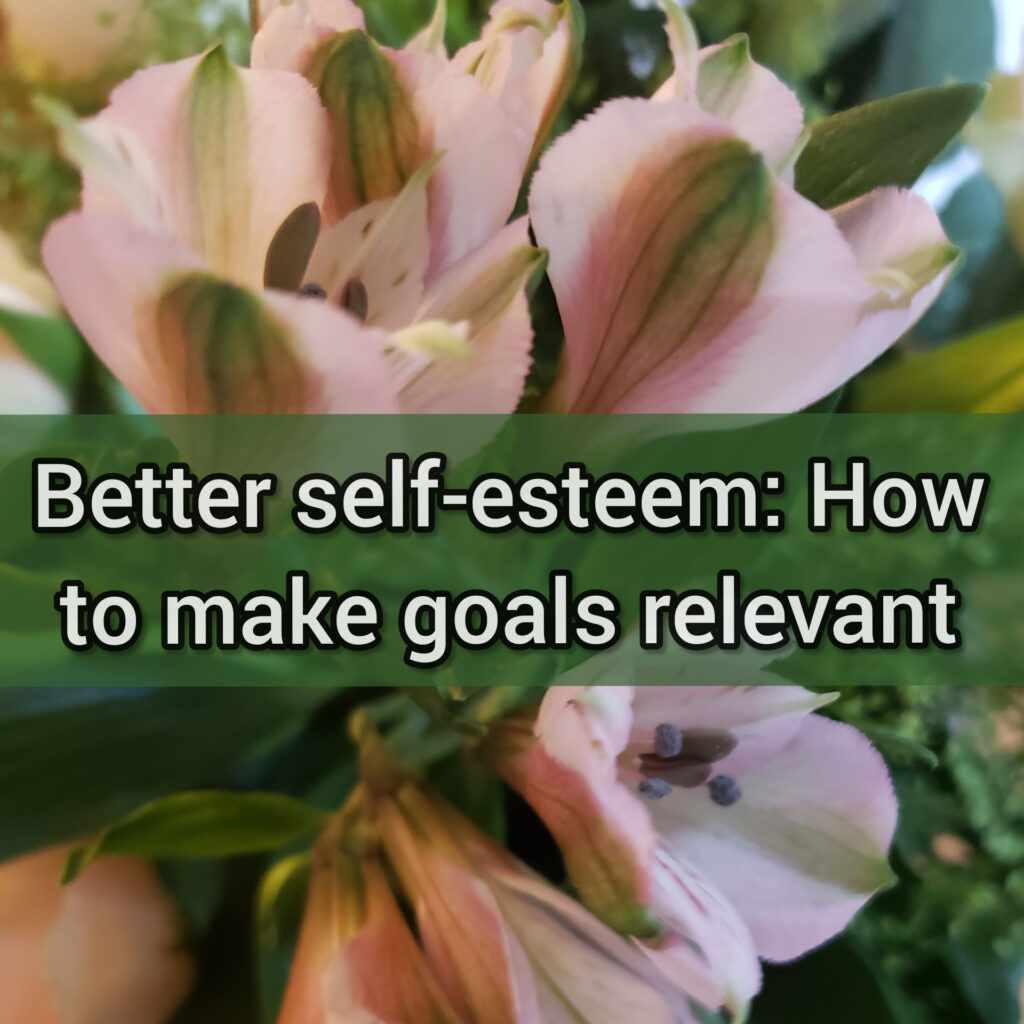Better self-esteem: How to make goals relevant (1 minute read)
Better self-esteem: How to make goals relevant (1 minute read)
This post “Better self-esteem: How to make goals relevant” continues with how you can increase your self-esteem by achieving your resolutions and goals. This will kick-start you towards your desired direction.
Better self-esteem: How to make goals relevant
Earlier posts introduced the SMART model.
The model stands for 5 important characteristics that can help you detail and hence make it easier to identify and achieve motivating goals:
Specific
Measurable
Achievable
Relevant
Time Limited
This post continues with how to make your goals relevant:
The goal must be meaningful. Saying that “I am going to sleep for at least 10 hours per night” is not appropriate because it’s not controllable.
Also, it could probably make you tired because it’s more than what is normally considered healthy for a non-stress-damaged person.
Research shows that a more realistic goal is in general to sleep on average at least 7 hours per night. But of course, the optimal number of hours of sleep is individual. For some it can be over 8.
If you get less than 7 hours of sleep, it is important to ensure compensatory rest and get more sleep the night after to avoid negative health consequences.
For more on how to increase your self-esteem, see the free blog or the course How to develop self-esteem and boost your confidence at https://jennyrappbefree.com
More information:
If you have any questions you can write a comment or e-mail me at jennyrapp@jennyrapp.com
Find more free inspiration on how to increase your self-esteem and well-being under the heading https://www.jennyrapp.com/self-esteem/ at https://www.jennyrapp.com/
Courses in personal development at https://www.jennyrappbefree.com/:
Develop self-esteem & boost your confidence
Relationships & inner strength
Create a balanced life & reach your potential
Powerful insights in psychology
HSP: Handle feelings, thoughts & behaviours
Also, see these user-friendly medical research databases:
The world’s largest government funded medical library: www.nlm.nih.gov
Johns Hopkins University: www.hopkinsmedicine.org
Harvard University: www.health.harvard.edu
Oxford university: http://solo.bodleian.ox.ac.uk/

